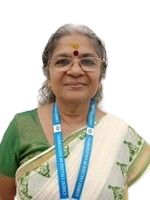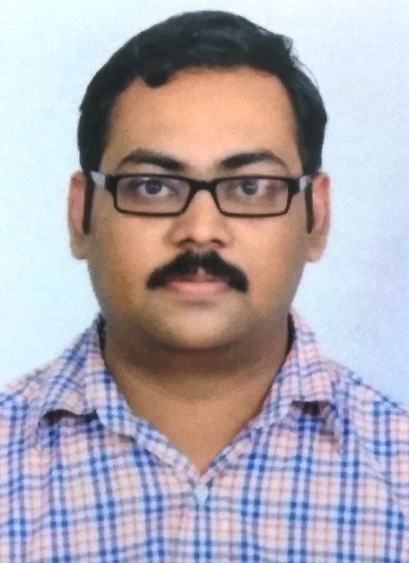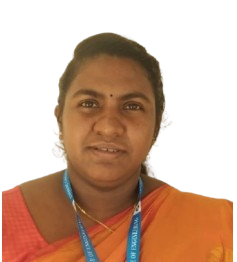About
The Department of Electrical and Electronics Engineering (EEE) of Christ College of Engineering was established in the year 2015, with excellent teaching-learning infrastructure. The department offers B. Tech Under graduate Program in Electrical and Electronics Engineering and is affiliated to A P J Abdul Kalam Technological University (KTU), Thiruvananthapuram. The AICTE sanctioned intake is 60 students/year. The goal of the department is to mould the students to become professionally competent engineers of high technical and managerial skills in the field of Electrical and Electronics Engineering. The teaching-learning environment is aligned to achieve this goal which helps the students to attain employment in reputed industries and admission for higher studies in premier institutions across the world. In addition to the curriculum provided by the University, students are exposed to projects, seminars, industrial visits, Academy Lecture by Industry Professionals (ALIP), professional body activities, etc., to provide comprehensive improvement in technical and managerial capabilities. Today, Electrical Engineering has a wide reach in all spheres of technology and has given rise to new varieties of opportunities like design and application of Solar Photo-Voltaic cells, Fuel Cells, Wind Energy Conversion Turbines, etc. To support the students in learning these new technologies, Value Added Courses are provided to students in the above-mentioned areas to make them capable of handling the changes in technologies. Thus, the EEE department at Christ College of Engineering prepares each student for grabbing bright careers in this constantly evolving discipline.
Departments
Home / Academics / Department / About
Vision
To excel in fostering competent Electrical and Electronics Engineering professionals with sound knowledge and practical skills for social upliftment.
Mission
- 1.
To impart the excitement of modern technology and problem-solving skill among students through the development of an inspiring teaching-learning environment.
- 2.
To mould the young minds to provide cost-effective, innovative and sustainable solutions, for the challenges faced by the society, through fundamental research and training.
- 3.
To develop ethical values, leadership skills and lifelong learning practices that leads the students to become responsible citizens.
Academic Uniqueness
- 1.
Industry Oriented, Project based Value Added Courses
- 2.
MoU with Hykon India Pvt. Ltd., Thrissur for Collaborating in Electric Vehicle Projects
- 3.
Professional Body Activities under the banner of IEEE and IEI.
- 4.
Project based Learning in Laboratories
- 5.
Technical and Non-technical student lead activities under the banner of BETA (EEE Students Association)
- 6.
Remedial Classes for Academic Improvement
- 7.
Personal Mentoring
Programme Details
Program Educational Objectives (PEOs) expand_more
PEO-1
Transform students into skilled professionals in Electrical and Electronics Engineering with strong foundation in Mathematics, Basic Science and Management.
PEO-2
Mould the students to achieve and excel in their engineering profession and for higher studies.
PEO-3
Promote the students to emerge as an expert in Electrical and Electronics Engineering with excellent oral and written communication skills, ethical and human values, life-long learning capabilities and professionalism for the benefit of industry and society.
Program Outcomes (POs) expand_more
PO-1
Engineering Knowledge: Apply the knowledge of mathematics, science, engineering fundamentals, and an engineering specialization to the solution of complex engineering problems.
PO-2
Problem analysis: Identify, formulate, review research literature, and analyze complex engineering problems reaching substantiated conclusions using first principles of mathematics, natural sciences, and engineering sciences.
PO-3
Design/development of solutions: Design solutions for complex engineering problems and design system components or processes that meet the specified needs with appropriate consideration for the public health and safety, and the cultural, societal, and environmental considerations.
PO-4
Conduct investigations of complex problems: Use research-based knowledge including design of experiments, analysis and interpretation of data, and synthesis of the information to provide valid conclusions.
PO-5
Modern Tool Usage: Create, select, and apply appropriate techniques, resources, and modern engineering and IT tools including prediction and modeling to complex engineering activities with an understanding of the limitations.
PO-6
The engineer and society: Apply reasoning informed by the contextual knowledge to assess societal, health, safety, legal, and cultural issues and the consequent responsibilities relevant to the professional engineering practice.
PO-7
Environment and sustainability: Understand the impact of the professional engineering solutions in societal and environmental contexts, and demonstrate the knowledge of, and need for sustainable development.
PO-8
Ethics: Apply ethical principles and commit to professional ethics and responsibilities and norms of the engineering practice.
PO-9
Individual and Team work: Function effectively as an individual, and as a member or leader in teams, and in multidisciplinary settings.
PO-10
Communication: Communicate effectively with the engineering community and with society at large. Be able to comprehend and write effective reports documentation. Make effective presentations, and give and receive clear instructions.
PO-11
Project management and finance: Demonstrate knowledge and understanding of engineering and management principles and apply these to one’s own work, as a member and leader in a team. Manage projects in multidisciplinary environments.
PO-12
Life-long learning: Recognize the need for, and have the preparation and ability to engage in independent and lifelong learning in the broadest context of technological change.
Program Specific Outcomes (PSOs) expand_more
PSO-1
Provide techno-economic solutions to implement smart electricity distribution systems, renewable energy technologies, electric drive and transportation systems.
PSO-2
Attain competence in developing, testing and implementing electrical and/or electronic systems by the effective use of relevant scientific and technological solutions.
PSO-3
Apply the fundamental knowledge of Mathematics, Science, Electrical and Electronics Engineering to identify, analyse and solve the real-life problems in Electrical, Electronics and allied interdisciplinary areas.




























